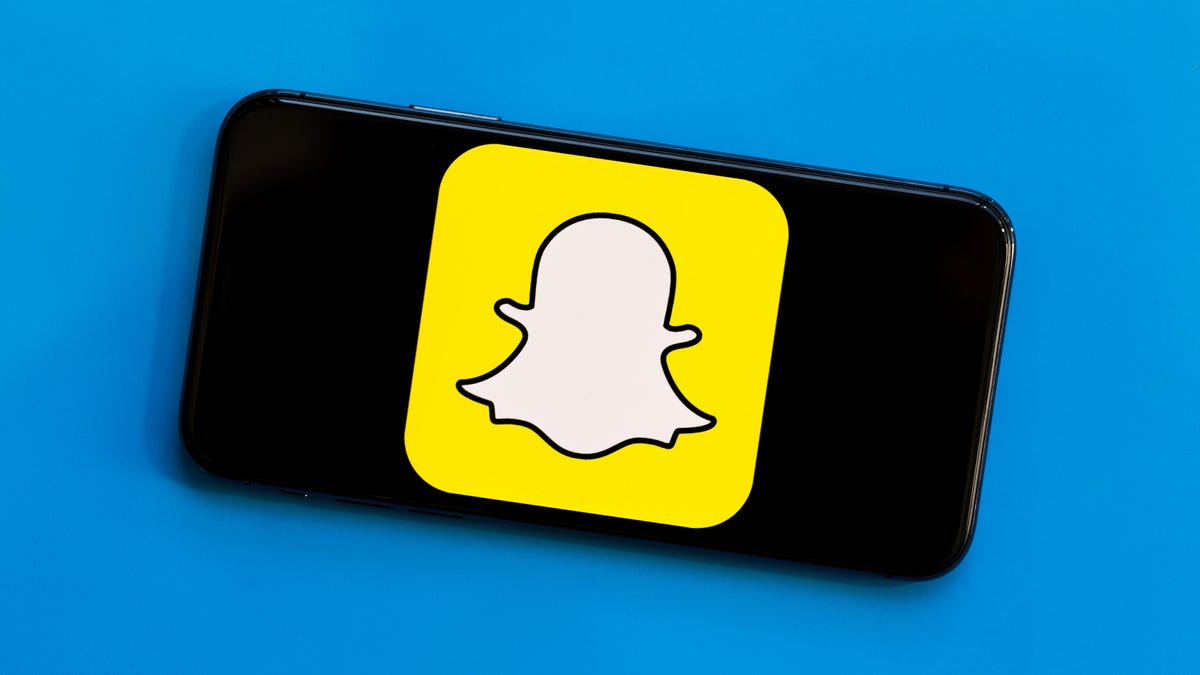Snap grows revenue and users amid coronavirus pandemic
The company had 249 million daily active users in the third quarter.

Snapchat reported third-quarter earnings on Tuesday.
Snap, the parent of ephemeral messaging app Snapchat , added to its number of daily users and raked in more revenue than expected in the third quarter, a performance fueled by people using the platform to stay in touch with family and friends during the coronavirus pandemic.
In the third quarter, the number of people logging in to Snapchat daily totaled 249 million, up 18% compared with the same period last year.
"Our focus on delivering value for our community and advertising partners is yielding positive results during this challenging time. We're excited about the growth of our business in Q3 as we continue to make long-term investments in our future," Snap CEO Evan Spiegel said in a statement Tuesday. "The adoption of augmented reality is happening faster than we had previously anticipated, and we are working together as a team to execute on the many opportunities in front of us."
Businesses have been more open to experimenting with augmented reality to drive sales because stores aren't as widely accessible anymore because of the pandemic, Spiegel added during a conference call with analysts.
Snap has fueled the popularity of augmented reality with camera filters that let users transform into an anime character, change their hair color or incorporate effects into their selfies. It's also been releasing features that let users add AR effects to local buildings and landmarks. One effect, for example, makes it seem like the Capitol building is shooting confetti. A feature called City Painter that was released in London lets users create virtual art around the city.
Snapchat, though, also faces competition including from Facebook-owned Instagram and short-form video app TikTok. This month, Snapchat launched a feature called Sounds that allows iPhone users to add music to their photos and videos. The company is testing a way for users to add their own sounds to their snaps. Snap has also been investing in original shows in addition to augmented reality.
Spiegel said during a virtual conference hosted by The Wall Street Journal later on Tuesday that it's been impressive to see TikTok's growth. The short-form video app also promotes videos from users who don't have a lot of followers, helping to fuel the spread of the best content, he said.
Read more: Snapchat's newest AR effects work with Apple's iPhone 12 and iPad lidar
Oracle and Walmart are trying to finalize a deal with TikTok after President Donald Trump's administration targeted the short-form video app. Chinese tech company ByteDance owns TikTok, raising concerns from lawmakers that the app could be used to spy on US citizens. TikTok has said it wouldn't turn over data to the Chinese government, even if it were asked to do so.
Spiegel said that Snap couldn't afford to acquire TikTok, adding that "it's a little too expensive for a little company like Snap." Still, he said, Snap still plans to compete with the app globally. "Snapchat's a very different product than TikTok. We're very focused on visual communication and augmented reality," he said.
Snapchat's performance in the quarter also appeared to benefit from an advertiser boycott of Facebook that was organized by civil rights groups in July to pressure the social network to do more to combat hate speech. Verizon, The North Face and Target among others participated in the boycott.
"As brands and other organizations used this period of uncertainty as an opportunity to evaluate their advertising spend, we saw many brands look to align their marketing efforts with platforms who share their corporate values," said Snap's chief business officer, Jeremi Gorman, during a call with analysts on Tuesday.
From July to September, Snap generated $679 million in revenue, beating Wall Street's forecast of $556 million. The company reported a net loss of $200 million in the third quarter.
The company lost 14 cents per share, which is better than the loss of 18 cents per share analysts surveyed by Thomson Reuters expected. Excluding certain expenses, Snap lost 1 cent per share, beating the loss of 5 cents per share anticipated.
Snap's stock jumped more than 18% at $33.81 per share in after-hours trading.
Debra Aho Williamson, principal analyst at eMarketer, said in a statement that Snap offers businesses unique advertisements, such as augmented reality ads and commercials in video shows. Analysts, though, are expecting user growth to slow down as the pandemic continues.
"The initial phases of the pandemic drove increased engagement among existing social media users and caused a small number of new users to join social media properties," she said. "But as the pandemic has worn on, this 'pandemic bump' has abated, and growth in the number of new users for Snapchat (as well as for most other social platforms) is slowing."

